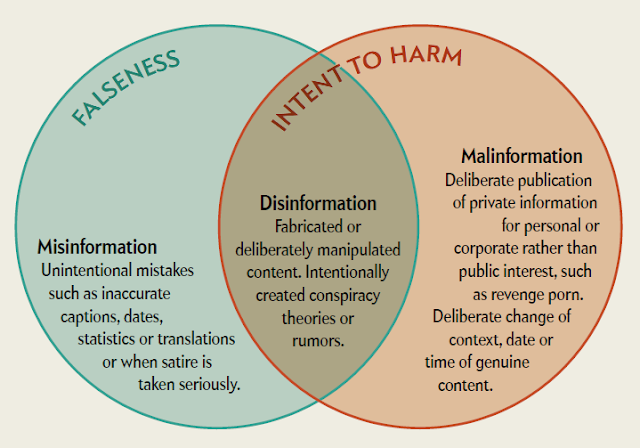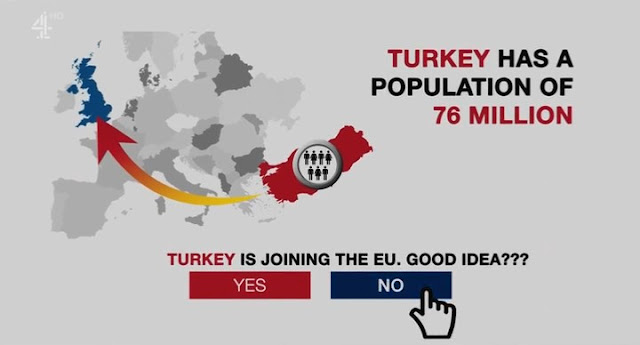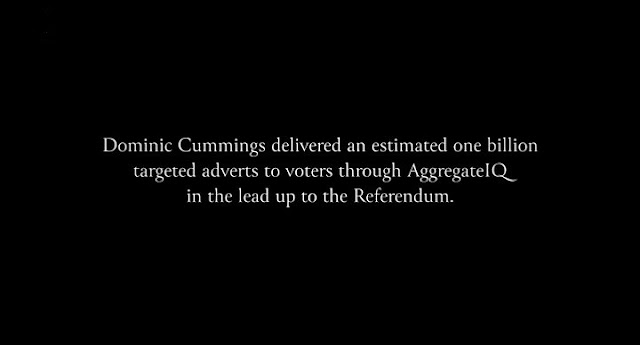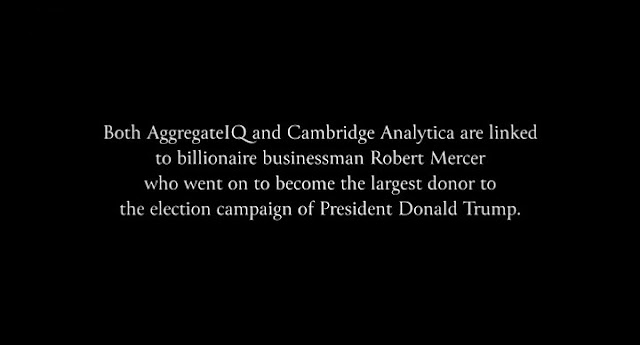Who controls the Past controls the Future
Who controls the Present controls the Past
— George Orwell (1903 – 50), Nineteen Eight-Four, 1949.
The struggle of Man against Power
Is the struggle of Memory against Forgetting
— Milan Kundera (1929), The Book of Laughter and Forgetting, 1979.
Three Categories of Information Disorder

(Claire Wardle, A New World Disorder, Scientific American, September 2019, p 90)
Edward Bernays (1891 – 1995):
The conscious and intelligent manipulation of the organized habits and opinions of the masses is an important element in democratic society.
Those who manipulate this unseen mechanism of society constitute an invisible government that is the true ruling power of this country.
We are governed, our minds molded, our tastes formed, our ideas suggested, largely by men we have never heard of. …
In almost every act of our daily lives, whetherwe are dominated by the relatively small number of persons … who understand the mental processes and social patterns of the masses.
- in the sphere of politics or business, [or]
- in our social conduct or our ethical thinking,
It is they who:(Organizing Chaos, Propaganda, Chapter 1, 1928, emphasis added.
- pull the wires [that] control the public mind,
- harness old social forces, and
- contrive new ways to bind and guide the world.
Stuart Ewen (1945) [Historian of Public Relations]:
[In a consumer society, it's] not that the people are in charge, but that the people's desires are in charge.
Paul Mazur [Lehman Brothers]:
We must shift … from a needs to a desires culture.
People must be trained to desire — to want new things even before the old have been entirely consumed.
We must shape a new mentality …
Man's desires must overshadow his needs.
(Adam Curtis, Happiness Machines, The Century of the Self, Episode 1, 2002)
Propaganda:
A concerted set of messages aimed at influencing the opinions or behavior of large numbers of people.
(Wiktionary, 16 February 2013)
Danny Glover:
Every aspect of our lives — from what we buy, what is sold to us, who produces it — all those things are connected.
It's not only a monopoly of wealth, it's a monopoly of information …
Noam Chompsky (1928):
The United States is unusual among the industrial democracies in the rigidity of the system of ideological control … exercised through the mass media.
(Jean-Philippe Tremblay, Shadows of Liberty, 2012)
Thomas Paine (1737 – 1809):
When men yield up the exclusive privilege of thinking, the last shadow of liberty quits the horizon.
(1776)
Edward Murrow (1908 – 1965):
We must remember always, that accusation is not proof, and that conviction depends upon evidence and due process of law.
We will not walk in fear, one of another.
We will not be driven by fear into an age of unreason if we dig deep into our history and our doctrine, and remember that we are not descended from fearful men.
Not from men who feared to write, to associate, to speak, and to defend the causes that were for the moment unpopular.
This is no time for men who oppose Senator McCarthy's methods to keep silent …
We can deny our heritage and our history but we cannot escape responsibility for the result.
We proclaim ourselves as indeed we are, the defenders of freedom wherever it continues to exist in the world.
But we cannot defend freedom abroad by deserting it at home. …
[Our] history will be what we make it.
If we go on as we are, then history will take its revenge, and retribution will not limp in catching up with us.
Just once in a while let us exalt the importance of ideas and information. …
Good night, and good luck.
(George Clooney, Good Night, and Good Luck, 2005)
Ours For The Taking
We have fought [and won] without a single bullet being fired.
— Nigel Farage (1964), 24 June 2016.
There's a systems failure in this country and across the West.
We're languishing.
We're drifting without a vision or a purpose.
What do you do … when there's a systems failure?
You reset.
— Dominic Cummings (1971)
Craig Oliver (1969) [Director of Communications for David Cameron, 2011–16]:
There's the danger [with the Brexit referendum] of having unleashed something which we can't then control.
Michael Gove (1967) [Conservative Cabinet Minister]:
[David Cameron] said, if I get what I want, and we win this, it will destroy him.
Dominic Cummings (1971) [Political Strategist]:
[The social network data miners at AggregateIQ have found] 3 million potential voters not on any voter database …
Remain have no idea they exist.
If we can reach 'em, they're ours for the taking.
Contents
Democracy in Action
The Enemy of the People
NewSpeak Dictionary
An Australian Purge
Rupert Murdoch
Freedom of Communication
The Daily Telegraph: 2013 Election Coverage
Media Coverage of Climate Change
Political Disposition versus Integrity
Hidden Agenda
Climate Antiscience
Defending the Public Interest
Independent Media Inquiry
Debunking Handbook
Murdoch's Australian and the Shaping of the Nation
Media and Reality
A Threat to Freedom
Cultural Cognition and Risk Perception
The Deficit Model
Would you like to know more?
Ignorance is Strength
- Is News Corp Failing Science? September 2012.
Aaron Huertas: Press Secretary, UCS Communications Department.
Dena Adler: Outreach Intern, UCS Climate and Energy Program.
News Corp and Climate Change
News Corp’s Statements and Actions on Climate Change
News Corporation is one of the top five media companies operating in the United States.
In 2011, it [made] $32.8 billion in revenue. …
Rupert Murdoch:
(p 1)
[When] people see that 99% of scientists agree about the serious extent of global warming, it’s going to become a fact of life.
(Grist Magazine, 2007)
[We are the first company of our kind to] become carbon-neutral across all of our global operations …
We aim to …- grow our business without growing our carbon footprint …
- power our operations with clean electricity …
- minimize solid waste to landfill from our production operations [and]
- engage our readers, viewers and customers on sustainability issues through partnerships and content of the highest caliber …
Examining Representations of Climate Science
Bill Sammon [Fox News Channel VP and Washington managing editor]:
[Anecdotal] reviews have demonstrated that the Wall Street Journal editorial board has treated climate science dismissively, along with acid rain, ozone depletion, and other findings from environmental and atmospheric science. …
[We] should refrain from asserting that the planet has warmed (or cooled) in any given period without IMMEDIATELY pointing out that such theories are based upon data that critics have called into question.
It is not our place as journalists to assert such notions as facts …
("Given the controversy over the veracity of climate change data …", 8 December 2009)
In 2011, Fox News Channel was the most popular cable news channel in the United States, with a median [evening prime time] viewership of some 1.9 million people …
Fox News Channel shows comprised nine of the top 10 most popular cable news programs in 2011 among … adults aged 25 to 54 years old …
The Wall Street Journal … is the largest American newspaper — with a total circulation of more than 2 million.
(p 2)
Measuring Representations of Climate Science and Climate Change
Accurate and Misleading Representations of Climate Science
Citations mentioning climate science were coded to determine if they were accurate or misleading based on whether they rejected or affirmed mainstream scientific understanding that climate change is occurring, is largely human-induced, and affects human and natural systems. …
Misleading citations were … categorized depending on the type of representations they made.
Many individual citations were found to advance multiple misleading claims …
(p 3)- Broad dismissal of the scientific evidence that climate change is occurring and is largely due to human activities. …
I thought we were getting warmer.
But in the ‘70s, it was, look out, we’re all going to freeze.
(Fox News Channel, 11 April 2012) - Disparaging climate scientists generally or specifically.
[Negatively characterizing] scientists who study climate change by name or climate researchers’ motivations and ethics.[That] doesn’t stop a global-warming alarmist like James Hansen, a lead scientist at NASA …
(Wall Street Journal op-ed, 4 July 2012) - Disparaging or mocking climate science as a body of knowledge.
[Comparing] climate science unfavorably with other scientific fields and criticized the methods used to reach conclusions in climate science.What a contrast [CERN] is to the pseudoscience promoted by the consensus-driven global-warming crowd.
(Wall Street Journal letter, 4 October 2011) - Cherry-picking individual facts or findings to question overall climate science conclusions. …
The lack of any statistically significant warming for over a decade …
(Wall Street Journal op-ed, 27 May 2012) - Debates or conversations in which misleading claims drown out accurate ones (coded only for Fox News Channel). …
Panel member:
The world gets more and more industrialized and we have had 10 of the 11 years have been the highest temperatures on record.
Host:
There could be an actual debate about this.
There will never be a debate because you call people like me a ‘flat earther.’
You’re saying it’s the warmest ever.
In 150 years of this much of 3 million years.
It’s been warmer and warmer before there were SUVs.
(Fox News Channel, 11 April 2012)
Denigrating Climate Science
… Instances of denigration go beyond inaccurate claims,- to express a lack of trust in scientists, scientific institutions, and their conclusions, or
- to characterize the acceptance or rejection of climate change as an ideological (as opposed to a scientific) issue. …
[Examples:]We are in the middle of what you might call a global warming bubble.
(p 5)
It is a failure of the global warming theory itself and of the credibility of its advocates …
(Wall Street Journal column, 9 March 2012)
This book is called ‘Don’t Sell Your Coat.’
It’s by a guy named Harold Ambler.
[He’s] a kind of a self-made expert on climate change. …
He’s a card-carrying liberal so now he’s a heretic because of this book. …
A great book on the facts and fallacies of climate change.
(Fox News Channel, 13 April 2012)
The green energy stuff …
[That’s] all a hoax and a fraud based on another hoax and fraud, global warming. …
(Fox News Channel, 23 March 2012)
Host:
Finally tonight, there is always some new threat to our environment from acid rain to global warming.
But here is a new one, and if you have any doubts, just listen to the scientist make his case …
Correspondent:
Scientists and medical researchers are launching a war against party balloons.
(Fox News Channel, 23 March 2012).
Representations Of Climate Science On Fox News Channel
Climate Science Representations
[37 of 40 representations of climate science were found to be misleading.]
The three instances that accurately represented climate science included- a video clip of Fox News Channel’s Bill O’Reilly,
- a clip of Representative Henry Waxman (D-CA), and
- a correspondent noting that environmentalists say burning coal is a leading cause of climate change.
Types of Arguments Used to Mislead on Climate Science
Fox News Channel hosts and guests often made multiple arguments against climate science in the same segment.
The most common form of criticism … was to broadly dismiss the scientific conclusion that climate change is occurring or human-induced.
Instances of disparaging scientists were not found in this six-month snapshot, although such instances have occurred on Fox News Channel in the past.
(p 7)
Disparaging and mocking climate science was relatively common in this sample …
[Fewer] instances of cherry-picking were found.
… 10 citations were included in which a panel member expressed acceptance of climate science findings but was drowned out by hosts or other panel members who responded with multiple misleading claims.
(p 8)
Representations of Climate Science in The Wall Street Journal Opinion Section
Types of Arguments Used to Mislead on Climate Science
Most of the editorials, op-eds, columns, and letters with misleading representations of climate science attempted to broadly undermine the major conclusions of climate science.
Instances of disparaging individual scientists, mocking climate science, or cherry-picking data also occurred with some regularity.
(p 10)
Representations of Climate Action
… Our analysis found 55 citations about climate action on Fox News Channel and 65 in the Wall Street Journal opinion section.
[A] cursory review found very few expressions of support for action on climate change.
This merits further analysis …
[It should be] possible to accept the findings of climate science while legitimately opposing specific climate actions or policies.
(p 12, italics added)
Conclusions and Recommendations
News Corp’s efforts to engage its audiences on sustainability are … undercut when misinformation about a key sustainability issue dominates [the] company’s [two flagship] media outlets. …
[As] an influential participant in American democracy, News Corp has an obligation to improve its representations of climate science. …
The British Broadcasting Corporation commissioned [an analysis of its portrayal of climate science] last year and identified some shortcomings in its climate change coverage …
[We call upon News Corp to do the same.]
(p 13)
Representations of climate science on the Fox News Channel and in the opinion section of the Wall Street Journal should be informed by an honest assessment of how cultural worldviews about the role of government affects people’s perception of scientific expertise and evidence on a range of issues, including nuclear waste, mandatory vaccination, and climate change.
These cultural biases in processing scientific information ought to be understood and examined, especially by media figures … who take their responsibilities to the public seriously.
A great many politicians, columnists, and other public figures from across the ideological spectrum accurately convey climate science to audiences and understand the difference between science and policy.
Their voices should be amplified, not ignored.
(p 14)
Other Studies And Future Research Directions
[An] examination of climate science coverage in newspaper opinion sections between 2007 and 2009 found that 73% of articles endorsed scientific conclusions of climate science while 20% took a skeptical or contrarian view.
[Compared to active climate researchers: 97% of whom are "convinced" that Anthropogenic Climate Change is underway versus 3% who are "not convinced".]
An analysis of Wall Street Journal editorials and op-eds on climate change published between October 2008 and January 2011 found that nearly half featured misrepresentations of climate science.
And a retrospective of the editorial board’s coverage of acid rain, ozone depletion, and climate change found that all the topics received similarly misleading coverage over time. …
A robust 2011 analysis [of] cable news coverage of climate change from 2007 and 2008 … found that nearly 60% of Fox News Channel coverage was dismissive of the scientific consensus on climate change while 20% was accepting.
The network was … more likely to reject claims that human activities are influencing climate change than were competitors CNN and MSNBC.
{[An] analysis of Fox News Channel’s coverage from 2001 to 2010 [found] that it relied on … three narratives for about 45% of its coverage …}
- “Don’t kill the goose,” suggesting that the threat climate change poses is real, but minimal;
- “hoax,” suggesting that “science and scientists are part of a conspiracy to perpetuate a fraud”; and a
- “he said/she said” narrative portraying an argument over whether climate change is occurring or is human-induced.
(p 21)
[It] is difficult to establish a causal link between viewership and opinions [due to self-selection. …]
[Studies have found:]- that Fox News Channel viewers were more likely than viewers of other networks to reject scientific evidence regarding climate change; viewers who watched most frequently were also most likely to reject the evidence.
- that more frequent viewing of Fox News Channel was correlated with an increased likelihood that respondents incorrectly thought scientists have concluded that climate change is not occurring or that views among scientists are evenly divided.
- that Americans who have “dismissive” or “doubtful” attitudes toward climate change are more likely to watch Fox News Channel than other cable news networks.
Future studies can [use] experimental exposure to news coverage to determine if such exposure has an effect on respondents’ attitudes toward climate change.
(p 22)
Political Disposition Versus Integrity
Robert Manne (1947): Professor of Politics, Latrobe University
[Paul Keating] made a terrible mistake in the mid-80s …
[He] allowed Rupert Murdoch's … News Limited, to take possession of … 70% of the Australian newspapers …
{[The] Press matters … not only [because it] sets the tone for radio and television news [but also because of its] enormous online presence …}
[Murdoch] combines … his passion for money and his passion for power in a highly original and innovative way.
[In] the United States, with Fox News, he has profoundly distorted the trajectory of the most important country in the world …
[He is] a highly destructive figure …
[The Australian newspaper] took a very strange turn when a very typical Murdoch employee, Chris Mitchell took over in 2002.
[Over the last decade] it has played an extraordinary role [in shaping] the politics of the nation [into what] we've become accustomed to …
[The] overwhelming issue of the age … is climate change.
[And] it has had a profoundly bad effect amongst the elite … on the question of climate change. …
At the heart of democratic politics in Australia is the need to confront the distorting impact the Murdoch press has had on our national affairs. …
[The Australian is] populist, conservative, neo-liberal [and] right wing – absolutely within the framework of Rupert Murdoch's politics …
But is was also a bullying paper.
[There] were certain people, like Tim Flannery, or myself, or various other people, David Marr …
There would be hundreds of articles over the years ridiculing, distorting, so on and so forth. …
There's an indigenous academic Larissa Barendt who wrote a silly tweet …
[For] about a month, her character was assassinated.
And she's not a robust person … she suffered a great deal. …
I felt someone had to stand up against this.
[And that] it was [important] not only to analyse it, but … to appear not to be frightened of the predictable response. …
There were [about] forty or fifty attacks [in response to my Quarterly Essay.]
[There] was one Saturday paper, in which … fifteen or sixteen thousand words [were] devoted to showing what a fool I was.
[For] me, it was very important that I fought back.
[There] is an old joke which says that you can never conduct an argument with any organisation … that buys ink by the barrel load …
… I have tried to show you can.
So … there are [three] elements to The Australian …
- that it's connected to the 70% of the Press in fighting for its causes …
- the ideology of the paper and …
- the bullying style [that plays such] a damaging role in the capacity of the country to have a democratic politics. …
[Tim Flannery is] one of the great writers of Australia … a very fine public intellectual and a very fine man. …
News Limited has tried to destroy his credibility.
[I believe] it's very important to resist. …
[There are] two papers that I read a fair bit of:
- The Australian is right wing,
- The Guardian is left wing. …
[The Guardian] definitely has a bias to the Left.
But I trust it's journalists [—] even to bring up cases which are awkward from their point of view. …
[They] discuss policy.
And they pursue even contradictions within the world of the Left.
Whereas I just don't think that's true of The Australian.
So there's not only the issue of [general political] disposition.
[There's] also the question of integrity …
[If] I read The New York Times, I don't [always] agree with it …
But I know they're [at least] trying to get it right. …
The Australian, in the early 90s, was quite a good paper — when Paul Kelly was the editor.
[We've] just watched as it's gone down hill …
(Media Matters, Perth Writers Festival, Big Ideas, ABC Television, 26 March 20012, emphasis added)
Is News Corp Failing Science?
Union of Concerned Scientists
- Over a recent six-month period, 93% of Fox News Channel’s representations of climate science were misleading (37 out of 40 instances).
- Similarly, over the past year, 81% of the representations of climate science in the Wall Street Journal’s opinion section were misleading (39 out of 48 instances).
UCS’s examination finds that the misleading citations include
- broad dismissals of human-caused climate change,
- disparaging comments about individual scientists,
- rejections of climate science as a body of knowledge, and
- cherry picking of data.
[Much] of this coverage denigrated climate science by either
- promoting distrust in scientists and scientific institutions or
- placing acceptance of climate change in an ideological, rather than fact-based, context.
In 2007 … Rupert Murdoch claimed coverage of climate change in his media outlets would improve over time.
[This] has not been achieved. …
(p vii)
UCS calls upon News Corp
- to undertake a thorough examination of how its media outlets portray climate science …
- to develop standards and practices for communicating the subject to its audiences [and]
- to help its staff to differentiate between ideological beliefs and scientific facts …
Would you like to know more?
Media Issues
The context of the turmoil in Australian media ownership in recent years may explain the level of support of Australian journalists for ownership regulation.
There is strong support for statutory limits on media ownership — 82% think the government should prevent increased concentration of ownership in the print media, and 53% feel the government should force Rupert Murdoch's dominant News Ltd group to divest newspapers.
Journalists also favor stringent limits on foreign ownership and cross-media ownership.
Journalists employed by the Fairfax group, recently taken over by Canadian Conrad Black, and by the public broadcast media are more in favor of regulation. …
[Among News Ltd journalists:
- 72% agreed that "government should prevent increased ownership concentration" and
- 40% that "government should force News Ltd (Murdoch) to divest in print media newspapers".]
A total of 59% give journalism a high rating for honesty and ethics. …
Most journalists … believe they have a high level of influence on public opinion.
(John Henningham, Characteristics and Attitudes of Australian Journalists, Electronic Journal of Communication, Vol 3, No 3 & 4, 1993)





